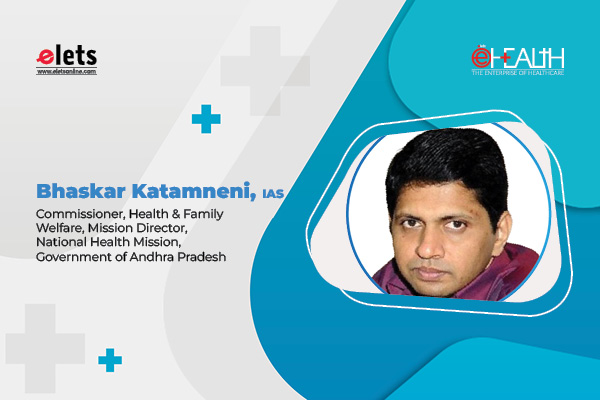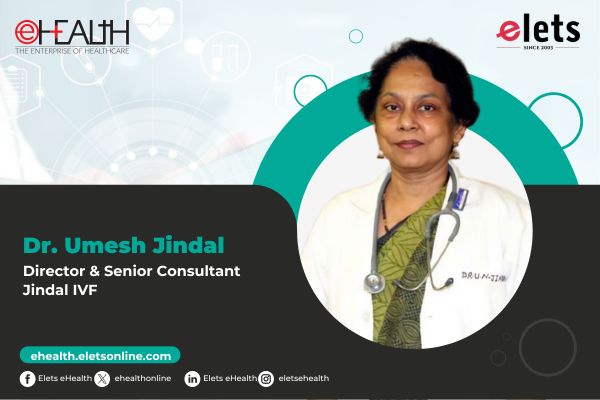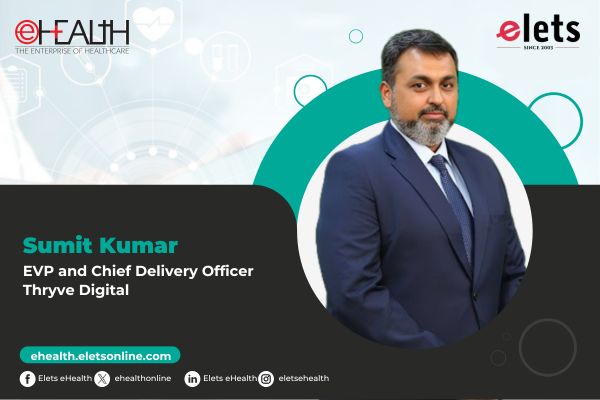
Sharing his experiences & challenges of transforming healthcare, Bhaskar Katamneni, IAS, Commissioner, Health & Family Welfare, Mission Director, National Health Mission, Government of Andhra Pradesh talked about the growth of telemedicine and digitization in Andhra Pradesh during the pandemic at the 3rd Elets Healthcare Transformation Summit. Edited excerpts:
Bhaskar Katamneni, IAS, Commissioner, Health & Family Welfare, Mission Director, National Health Mission, Government of Andhra Pradesh conveyed that during the Covid-19 pandemic, acceptance of telemedicine as an alternative or methodology for accessing services was a big change. He articulated that 45% of total telemedicine calls were made in the state of Andhra Pradesh in the last eight months by the people seeking telemedicine services. He further stated one biggest advantage of telemedicine is that it is not going to take away the services from their regular health systems.

He mentioned that telemedicine has been one successful venture in his state. Currently, the call load is 80,000 per day and they are hitting a kind of a ceiling with the number of doctors available on telemedicine and the bandwidth being limited. He shared that in the coming two months, there are plans to increase the bandwidth in such a way that the calls will go up to three lakhs per day. “We currently operate 28 hubs that will be going up very drastically and the bandwidth has also increased”, shared Bhaskar Katamneni.

He also talked about the digital health mission by the Government of India that created a unique health ID for around a crore population. He shared that the Andhra Pradesh model was quite different from other states and it not only created digital identity, but the entire digital health reports were made available for the patient which was being simultaneously synchronized to their health ID. He also added that they have also implemented HMIS with unique IDs and all government health practitioners have already registered.

He shared that introducing anything new or any change in management is really challenging. “It took only three to four months to do the digitization work in which 70-85% of the time was spent in convincing everybody to come up with a platform and still there are a number of people, particularly the health professionals, who are a little older in age, who are not fully into the digital way of living, who are finding it challenging to build a new way of life.”

He stressed on the need for continuous investment in physical infrastructure as well as human resources, particularly human resources. “A richer health ecosystem might be able to relieve the burden on the physical infrastructure, but not human resources because a digital health ecosystem enhances health seeking behavior. Governments and even the private sector have to continuously invest in human resources. So even if we use technology, it will be short of providing the services to the fullest. The investment in HR and investment in physical infrastructure definitely needs to go hand in hand,” he added.
Be a part of Elets Collaborative Initiatives. Join Us for Upcoming Events and explore business opportunities. Like us on Facebook , connect with us on LinkedIn and follow us on Twitter , Instagram.
"Exciting news! Elets technomedia is now on WhatsApp Channels Subscribe today by clicking the link and stay updated with the latest insights!" Click here!
















